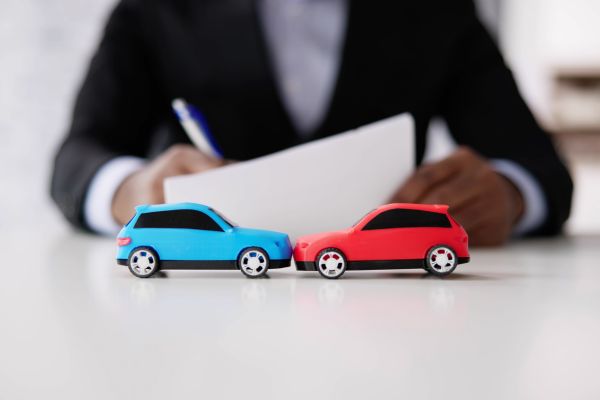Let’s be real—nobody hops into their car thinking, “I’ll probably end up in an accident today.” But accidents happen. Sometimes it’s a fender-bender, other times it’s a mess that leaves you shaken, confused, and wondering what to do next. In that split second after a crash, your mind goes blank, your hands shake, and all those safety tips you once read just fly out the window. That’s exactly why it’s important to know what to do after a car accident before it actually happens.
This guide isn’t here to scare you. It’s here to walk you through the steps—practical, human, and yes, sometimes a little messy—that you need to take if you find yourself in that situation.
First Things First: Stay Calm and Check Yourself
The very first thing to do after a car accident is take a deep breath. Sounds simple, but it matters. Your adrenaline will spike, and your brain will be screaming a thousand thoughts at once. Pause. Ask yourself: Am I okay? Do a quick check for pain, dizziness, or bleeding. Only after that should you look around and check on passengers.
If you or anyone else is seriously hurt, call emergency services immediately. Don’t try to be a hero or “tough it out.” Injuries like whiplash or internal bleeding don’t always show up right away, and waiting can make things worse.
Move to Safety if You Can
If the accident is minor and your car is still drivable, move it to the side of the road or a safe spot. Staying in the middle of traffic is dangerous—not just for you but for everyone else on the road. Turn on your hazard lights to make sure other drivers see you.
Now, if your car can’t be moved, don’t risk pushing it yourself on a busy road. Stay inside with your seatbelt fastened until help arrives, especially if you’re on a highway.
Call the Authorities
Here’s the thing: even if the accident seems small, you should still call the police. Why? Because having an official accident report makes everything easier later—insurance claims, legal protection, and even medical coverage.
When the officer arrives, stick to the facts. Avoid phrases like “I didn’t see them” or “It was my fault”. It might feel natural to apologize, but those words can come back to bite you later. Just describe what happened as clearly and calmly as possible.
Exchange Information the Smart Way
Once everyone is safe and help is on the way, you’ll need to exchange details with the other driver. This is one of those things that feels awkward in the moment but is absolutely necessary. Get their:
- Name
- Phone number
- Insurance company and policy number
- Driver’s license number
- License plate
Use your phone to snap photos of documents so you don’t risk writing something down wrong. Oh, and while you’re at it, take photos of the scene: both vehicles, any visible damage, road signs, skid marks, or anything else that could matter later.
Talk to Witnesses if They’re Around
Sometimes strangers will stop to help or just happen to see the whole thing unfold. If someone is willing to give a quick statement or share their contact info, take it. Witnesses can make a huge difference if the story of what happened gets messy between drivers or insurance companies.
Notify Your Insurance Company
This part isn’t fun, but it’s crucial. Call your insurance company as soon as you’re safe. Many companies have apps that let you upload photos and start the claim right away. Be honest and provide all the details you collected.
Remember: the sooner you file, the faster things move along. Waiting too long can complicate the claim or, in some cases, make it harder to get coverage.
Take Care of Your Health, Even if You Feel Fine
Here’s something people often skip. Just because you walked away feeling fine doesn’t mean you’re actually fine. Adrenaline masks pain, and sometimes injuries pop up days later. Whiplash, concussions, back issues—they don’t always announce themselves right away.
Book a check-up with your doctor, even if it feels unnecessary. At the very least, it gives you peace of mind. At most, it catches a hidden injury early before it gets worse.
Keep Records of Everything
Accidents leave a paper trail, and you’ll want to keep it all in one place. Police reports, medical bills, repair estimates, receipts for towing—every single piece of paper matters. You never know when your insurance company might ask for proof, or when you might need to revisit details down the line.
Keeping it organized also saves you from the headache of trying to track things down months later when your memory is fuzzy.
Know Your Rights
Depending on where you live, car accident laws vary. In some places, you deal with your own insurance no matter who was at fault. In others, the person who caused the accident takes the hit. If things start getting complicated, don’t hesitate to talk to a lawyer who specializes in car accidents. It doesn’t mean you’re “suing” anyone—it just means you’re protecting yourself.
Mental Health Matters Too
Let’s not ignore the mental side. Car accidents can be terrifying, even if no one gets hurt. It’s normal to feel shaken, anxious, or even scared to drive again. Give yourself time, and don’t feel embarrassed if you need to talk it out with a friend, family member, or even a therapist. Getting back behind the wheel is as much about mental recovery as it is about fixing your car.
Wrapping It All Up
So, what to do after a car accident? Breathe. Stay safe. Get help. Collect information. Protect yourself legally and medically. The steps aren’t complicated, but remembering them in the heat of the moment is the challenge. That’s why it’s worth walking through them now, while your hands aren’t shaking and your car isn’t crumpled on the side of the road.
Accidents may never be completely avoidable, but being prepared for what comes after gives you back some control. And in that moment, control is exactly what you’ll need most.





